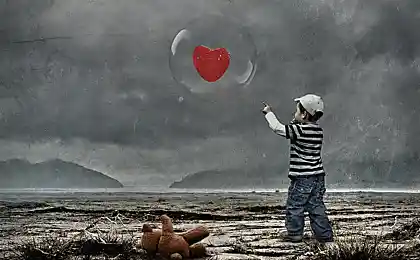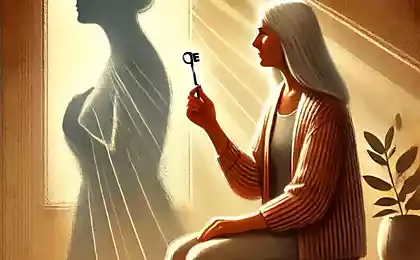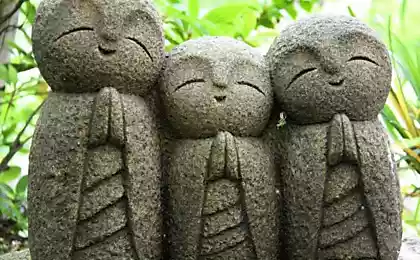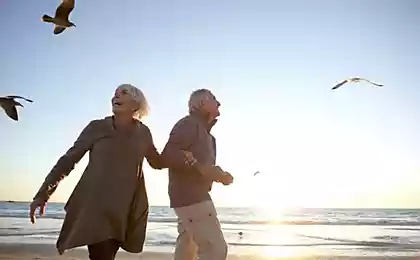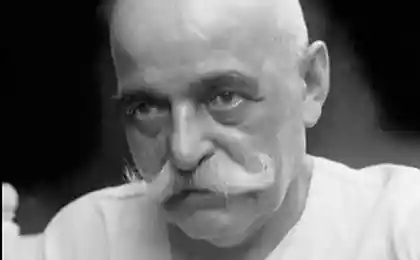787
Brené brown: That we have forgiven, something must die
So we've forgiven, something has to die in Ten years, I write about shame, courage, vulnerability and guilt, avoiding forgiveness. Why?
To find the relationship of forgiveness with the main themes of my work was not easy. I gathered a lot of data, but not been able to catch the dependence, to describe their relationship.
Closer to the topic of forgiveness, I went to work on the book The Gifts Of Imperfection (in Russian translation is called "the Gifts of imperfection. How to love yourself the way you are"). I thought I caught the idea by the tail, but right before sending material to a publisher three in-depth interviews disproved my hypothesis.
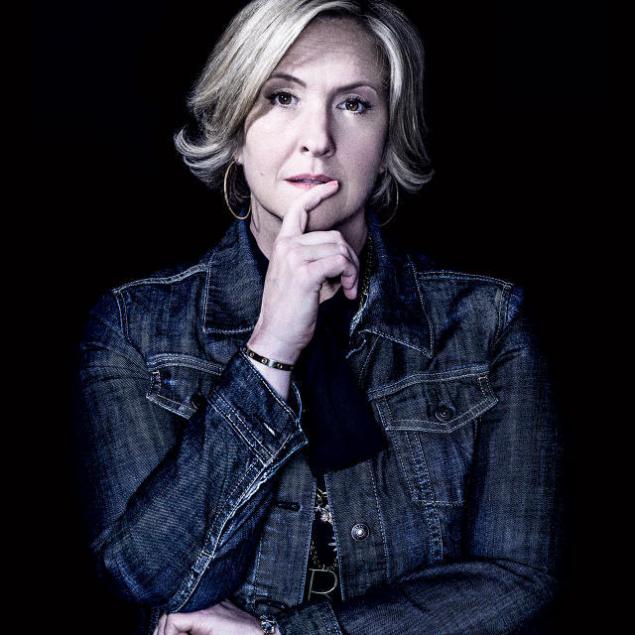
Brené Brown
As you know, quantitative research methods, it's normal to get exceptions (in statistics they are called "emissions"). If most of the results confirm the hypothesis, the quantity theory is true, despite exceptions.
In qualitative research methods such as depth interviews, this can not be. Each story is important, any hypothesis of the researcher needs to answer absolutely all data. If something falls, your hypothesis is wrong. It is a disgusting feeling! Find out what all the findings fly in the trash. But a conscientious attitude to work has never failed me. Everything I learned about forgiveness, was postponed for lack of other hypotheses to better times.
I once heard a sermon about forgiveness. Joe talked about how he had a couple on the verge of divorce. The wife found out that her husband cheated on her. Both husband and wife were in despair at the thought of an impending breakup. The woman could not forgive betrayal. Man, according to Joe, he could not forgive himself.
Joe said, "to allow yourself to forgive, you need to accept the fact that something died. That forgiveness has taken place, something must die. And you have to grieve about it. This complete cycle."
I immediately buried his face in his hands: finally all the pieces came together for me in a single picture. I felt sophisticated, who picked up the key that was set in motion. Forgiveness is so difficult because the path to it lies through death and grief. I tried to see forgiveness through the generosity and love — nothing worked. I had to watch through grief.

Given the chasm of fear in which we find ourselves, suffering the loss — no one act can be more generous and loving than the consent to experience the grief for forgiveness. To be forgiven means to be loved.
And death is necessary in order to open the path to forgiveness can take a very different form:
You may need to say goodbye to my expectations and dreams.
I may have to give up power, which gave us the sense of right.
Or write hope, without abandoning the support and approval of others.
Joe said, "whatever it was, it had become obsolete. It is not enough just not to think about it. Something has to die and we have to otherevery care. The price for forgiveness is high. Sometimes it is impossible high."
For several years I returned to my data to see the idea of forgiveness from a new perspective: through the completion, and the process of grief over the departed. I reworked the questions, conducted new interviews and dug in the books.
I'm not surprised that empirical studies confirm the impact of forgiveness on the emotional, mental and physical condition. Confirmation of this fact is found in the wonderful book by Desmond tutu "The Book of Forgiving: The Fourfold Path for Healing Ourselves and Our World" (book of forgiveness: the fourfold path of healing ourselves and our world), written with her daughter, MFIs tutu.
Tutu is an amazing person. He received the Nobel peace prize for their participation in the struggle against apartheid. But his book made such an impression on me that I find it hard to describe it in words, I can only advise to read it. The book not only confirms the words of Joe about the forgiveness, but tells about familiar topics: vulnerability, shame, courage... and the power the story.
In his book, the author shares a practical approach to forgiveness. He offers to tell a story, be called painful point, to give forgiveness — and then to decide whether to prolong the relationship or to end them.
Tutu writes, "Forgiveness is not altruism. Rather, it is a worthy form of selfishness. In the process of forgiveness there is a place of hatred and anger. Emotions talking about the fact that we — living people. Even more: the depth of our ability to love, as a rule, comparable with our ability to feel anger. It is not necessary to hate yourself for the rage we feel towards people who do terrible things.
Speaking of forgiveness, I believe that on the other side we leave the best versions of themselves. This version is better than the man who was consumed with hatred and anger. To remain in that condition — it means to sacrifice yourself, become addicted to the enemy. But if you find it in yourself to forgive, you are no longer dependent on him. You go along, you will help the enemy and become the best version of yourself".
Forgiveness, not oblivion, not an escape from responsibility, not connivance. This is the process of returning our lives to ourselves. This is our return to life. Archbishop tutu and Reverend tutu confirmed that immersion in the story leads to clarity, wisdom and respect yourself. We often seek simple answers to difficult questions, doubt their abilities, succumb to fear and give up too early. Instead, you can immerse yourself in the history.
I have never met a person who would easily forgive. Including forgiving yourself.
In families and close relationships, we love each other and regularly make each other hurt. The question is, what has to die in order to give the relationship a chance?published
Author: brené brown,an excerpt from the book “Strong Rising”, translation by Elena Truskova
P. S. And remember, just changing your mind - together we change the world! ©
Source: esolang.com/articles/relationship-articles/proschenie-new/brene-braun-chtoby-my-prostili-chto-to-dolzhno-umeret.html
To find the relationship of forgiveness with the main themes of my work was not easy. I gathered a lot of data, but not been able to catch the dependence, to describe their relationship.
Closer to the topic of forgiveness, I went to work on the book The Gifts Of Imperfection (in Russian translation is called "the Gifts of imperfection. How to love yourself the way you are"). I thought I caught the idea by the tail, but right before sending material to a publisher three in-depth interviews disproved my hypothesis.

Brené Brown
As you know, quantitative research methods, it's normal to get exceptions (in statistics they are called "emissions"). If most of the results confirm the hypothesis, the quantity theory is true, despite exceptions.
In qualitative research methods such as depth interviews, this can not be. Each story is important, any hypothesis of the researcher needs to answer absolutely all data. If something falls, your hypothesis is wrong. It is a disgusting feeling! Find out what all the findings fly in the trash. But a conscientious attitude to work has never failed me. Everything I learned about forgiveness, was postponed for lack of other hypotheses to better times.
I once heard a sermon about forgiveness. Joe talked about how he had a couple on the verge of divorce. The wife found out that her husband cheated on her. Both husband and wife were in despair at the thought of an impending breakup. The woman could not forgive betrayal. Man, according to Joe, he could not forgive himself.
Joe said, "to allow yourself to forgive, you need to accept the fact that something died. That forgiveness has taken place, something must die. And you have to grieve about it. This complete cycle."
I immediately buried his face in his hands: finally all the pieces came together for me in a single picture. I felt sophisticated, who picked up the key that was set in motion. Forgiveness is so difficult because the path to it lies through death and grief. I tried to see forgiveness through the generosity and love — nothing worked. I had to watch through grief.

Given the chasm of fear in which we find ourselves, suffering the loss — no one act can be more generous and loving than the consent to experience the grief for forgiveness. To be forgiven means to be loved.
And death is necessary in order to open the path to forgiveness can take a very different form:
You may need to say goodbye to my expectations and dreams.
I may have to give up power, which gave us the sense of right.
Or write hope, without abandoning the support and approval of others.
Joe said, "whatever it was, it had become obsolete. It is not enough just not to think about it. Something has to die and we have to otherevery care. The price for forgiveness is high. Sometimes it is impossible high."
For several years I returned to my data to see the idea of forgiveness from a new perspective: through the completion, and the process of grief over the departed. I reworked the questions, conducted new interviews and dug in the books.
I'm not surprised that empirical studies confirm the impact of forgiveness on the emotional, mental and physical condition. Confirmation of this fact is found in the wonderful book by Desmond tutu "The Book of Forgiving: The Fourfold Path for Healing Ourselves and Our World" (book of forgiveness: the fourfold path of healing ourselves and our world), written with her daughter, MFIs tutu.
Tutu is an amazing person. He received the Nobel peace prize for their participation in the struggle against apartheid. But his book made such an impression on me that I find it hard to describe it in words, I can only advise to read it. The book not only confirms the words of Joe about the forgiveness, but tells about familiar topics: vulnerability, shame, courage... and the power the story.
In his book, the author shares a practical approach to forgiveness. He offers to tell a story, be called painful point, to give forgiveness — and then to decide whether to prolong the relationship or to end them.
Tutu writes, "Forgiveness is not altruism. Rather, it is a worthy form of selfishness. In the process of forgiveness there is a place of hatred and anger. Emotions talking about the fact that we — living people. Even more: the depth of our ability to love, as a rule, comparable with our ability to feel anger. It is not necessary to hate yourself for the rage we feel towards people who do terrible things.
Speaking of forgiveness, I believe that on the other side we leave the best versions of themselves. This version is better than the man who was consumed with hatred and anger. To remain in that condition — it means to sacrifice yourself, become addicted to the enemy. But if you find it in yourself to forgive, you are no longer dependent on him. You go along, you will help the enemy and become the best version of yourself".
Forgiveness, not oblivion, not an escape from responsibility, not connivance. This is the process of returning our lives to ourselves. This is our return to life. Archbishop tutu and Reverend tutu confirmed that immersion in the story leads to clarity, wisdom and respect yourself. We often seek simple answers to difficult questions, doubt their abilities, succumb to fear and give up too early. Instead, you can immerse yourself in the history.
I have never met a person who would easily forgive. Including forgiving yourself.
In families and close relationships, we love each other and regularly make each other hurt. The question is, what has to die in order to give the relationship a chance?published
Author: brené brown,an excerpt from the book “Strong Rising”, translation by Elena Truskova
P. S. And remember, just changing your mind - together we change the world! ©
Source: esolang.com/articles/relationship-articles/proschenie-new/brene-braun-chtoby-my-prostili-chto-to-dolzhno-umeret.html

